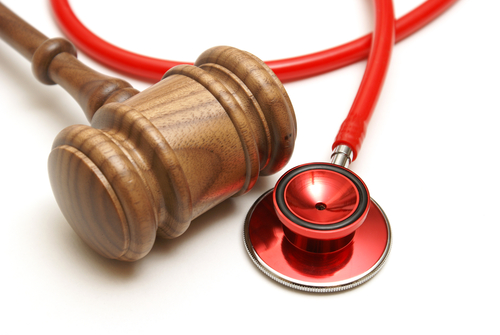Medical mistakes are the ugly secret of the health industry. Every year, a significant number of people die because of preventable errors. That’s why hospitals and physicians have to pay such hefty insurance fees. When something bad happens, you can file a lawsuit. According to birth injury lawyer the Lancione Law Firm: “By filing a birth injury lawsuit, you can recover the monetary compensation you need… It can also serve to hold the wrongdoer accountable for the actions…” Nobody can predict negligence in advance. However, there are medical mistakes that are particularly common. Here’s what they are. 1. Misdiagnosis This is perhaps the most serious as well as the most common medical mistake. It’s easy to see why a misdiagnosis can have devastating effects. You’re not getting the treatment you need if your medical team doesn’t know what’s actually wrong with you. Now, this issue can be tricky. Human bodies aren’t machines. The exact cause of a disease may be unclear. Your doctor has only made a mistake if other medical professionals, given the same information, would have arrived at the correct diagnosis. 2. Unnecessary Tests Medical tests are expensive, often painful, and sometimes deadly. No one should be subjected to unnecessary testing. However, sometimes doctors make mistakes about the course of treatment. Their patients undergo pain and suffering. If you feel that this happened to you, you need to have your case reviewed by a lawyer. 3. Pharmaceutical Mistakes A mistake by your pharmacist can kill you. It’s estimated that more than a million Americans are injured by medication mistakes every year. These mistakes can happen at your regular pharmacist or at the hospital. One way to protect yourself is to become familiar with your medication. Know what it’s called, what it looks like, and the size of your dose. If you’re ever admitted to the hospital, you’ll have to let the doctor know what medicine you’re already taking. 4. Extreme Mistakes There is a category of errors so grievous that they should never occur in an advanced society. Yet, they do. Surgeons operate on the wrong person. Strange devices are left inside bodily cavities. These are the most extreme mistakes on the list, and the most glaring cases of negligence. 5.Hospital Infections Hospitals are full of sick people. It sounds obvious, but the implications are not. The building is alive with dangerous bacteria and viruses. Catching an infection in the hospital is very common. Depending on the reason why you’ve been admitted, your immune system may be compromised. You won’t be in a good position to fight off an infection. Unfortunately, there’s not a lot that you can do about this other than avoid going to the hospital. 6. Paperwork Most hospitals and medical clinics use digital records. However, there are still a few places that keep track of everything by hand. In addition, digital records don’t guarantee perfection. They may have been entered incorrectly. The system may glitch. When this happens, it can result in the doctor treating you based on incorrect information. It could seriously impact your health. 7. Device Failure Modern technology is astounding, but it’s not fool-proof. Your pacemaker can save your life. In extremely rare cases, it can also malfunction and kill you. The only thing you can do is follow the doctor’s advice and use any medical equipment the way it’s supposed to be used. If something bad does occur, you may be able to sue the manufacturer. A class-action lawsuit may even be possible if enough people experienced the same mishap. 8. Bias This one is difficult to identify, but it exists. Doctors bring their unconscious biases to work. A young, minority woman may have a different experience than a white male. This could lead to a physician misjudging the symptoms. A woman’s abdominal pain may be written off as part of her menstrual cycle. 9. Lack of Coordination No matter what’s wrong with you, it’s likely that you will see more than one doctor. If there’s no communication between them, it could result in one doctor prescribing medication that would react poorly with what another doctor has already prescribed. You have to become your own advocate. Take notes at all of your appointments. Conclusion The medical industry is far from perfect. Even in 2019, it’s possible to become ill or die due to a preventable error. The good news is that the rate of these incidents is decreasing. Equipment is improving and the medical knowledge base is expanding.






